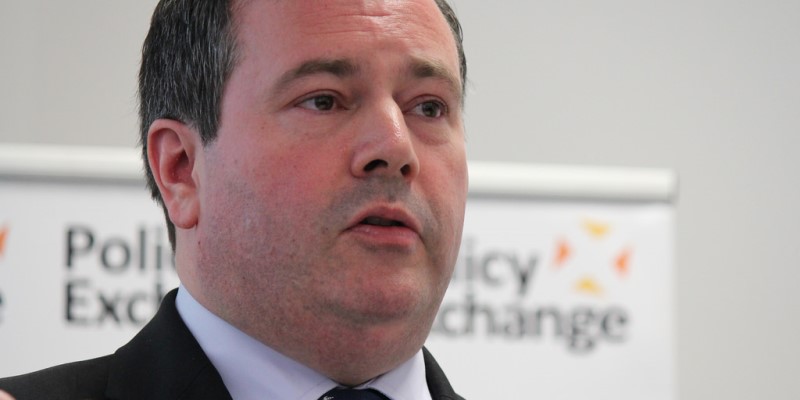Kenney shouldn’t dither—upcoming budget should be bullish on deficit, taxes

After a panel led by Janice MacKinnon, former Saskatchewan finance minister, released its “Blue Ribbon” report on Alberta’s finances last month, many observers thought Alberta was finally getting serious about its fiscal situation. And indeed, the MacKinnon report showed how the Kenney government can balance the budget by 2022/23, without increasing taxes.
But if history is any guide, the Kenney government, which will table its budget Oct. 24, shouldn’t wait until 2022/23 to balance the books and should also restore Alberta’s once-famous “tax advantage” as quickly as possible.
Here’s why.
Waiting four years to balance the budget comes with significant risks. The most successful deficit-elimination efforts in recent Canadian history featured shorter timelines. In the 1990s, governments of all political stripes across the country (including Alberta’s provincial government) tackled major deficits and eliminated them quickly over a two- to three-year period.
By comparison, longer timelines to eliminate deficits have proved less successful, to put it mildly. Consider Ontario’s seven-year deficit-elimination plan initiated by Premier Dalton McGuinty and embraced later by Premier Kathleen Wynne. For a variety of reasons, Ontario never made it back to balance—and racked up massive government debt along the way. Kenney’s government would be wise to learn from Ontario’s hard lessons. Those who tarry on the way to balance can pay a steep price.
On the tax front, Alberta’s competitiveness has been badly undermined in recent years. Five years ago, Alberta had a tax advantage over other jurisdictions, on the overall tax burden and key taxes including corporate and personal income taxes. Notley government tax hikes largely erased these advantages. Reversing these moves by reducing key tax rates will help the economy recover.
In fact, the Kenney government is off to a good start in this area; it’s already announced a gradual reduction to the corporate income tax, which will make an Alberta a more attractive place to do businesses. However, in light of recent federal and provincial hikes, coupled with major tax reform in the United States, Alberta’s high marginal tax rate (48 per cent) on personal income remains a big problem.
Remember, only five years ago Alberta had the lowest top marginal tax rate in Canada or the U.S., which helped the province attract top talent and spurred economic growth. Now, Alberta sits in the bottom half of the provinces and U.S. states. Reducing personal income tax rates, thus restoring Alberta’s former advantage in this crucial area, should be a critical goal of the Kenney government.
Moreover, the government can take steps to boost economic growth at little cost to the treasury. For example, eliminating capital gains from provincial income taxes in Alberta would encourage entrepreneurship, investment and savings while sending a powerful message that the province is once again committed to competitiveness.
Of course, balancing the budget sooner rather than later while implementing such reform will require the Kenney government to go beyond the nominal spending freeze offered in the MacKinnon report. Specifically, as noted in our recent study, achieving budget balance in three years, while implementing comprehensive tax reform, will require a nominal spending reduction of 10.9 per cent. That’s an ambitious goal, but it’s much smaller than the spending reductions of the 1990s when the Klein government reduced nominal spending by more than 20 per cent.
The MacKinnon report fulfilled its mandate, showing how Alberta can balance the budget over four years without tax hikes. But the Kenney government can increase the chances of successfully eliminating the province’s deficit—while increasing tax competitiveness—by going further and reducing and reforming spending starting in its upcoming budget later this month.
Authors:
Subscribe to the Fraser Institute
Get the latest news from the Fraser Institute on the latest research studies, news and events.


